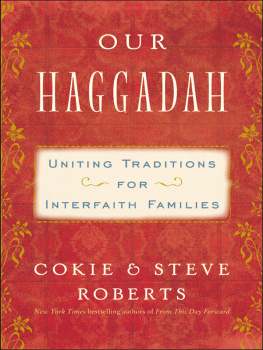FOR THE FIRST TIME, Americans mourned as one. Again and again over the centuries the country would come together in grief or shockthe assassinations of Abraham Lincoln and John F. Kennedy, the attacks on Pearl Harbor and the World Trade Center, the death of Franklin Roosevelt. The first of those nation-binding tragedies rocked the public in the last days of the eighteenth century. On December 14, 1799, George Washington died.
Of course on that day no stentorian-voiced anchormen broke into regular programming to announce the sudden and unexpected death; no dramatic stop-the-presses moment marked the passing of the Father of the Country. It took some time for the news from Mount Vernon, where Martha Washington had been keeping watch over her husband of almost forty-one years, to reach the rest of the world. First family and friends nearby, then the Congress, still meeting over Christmas in the temporary capital of Philadelphia, received the report of the sudden loss of the sixty-seven-year-old man who had been leader since soon after the first shots of the Revolution were fired almost twenty-five years earlier. Congress set the official memorial service for the day after Christmas. A Philadelphia woman the next day estimated that four thousand people attended that serviceled by President John Adams and his Lady, the indomitable Abigail Adams. Her husbands chief adviser, the First Lady knew that this public display would help John Adams politically, and she was nothing if not politically savvy. An important election was in the offing, or as Abigail Adams put it, a time for intrigue is approaching, and it couldnt hurt the embattled incumbent president to remind the voters of his ties to the Federalist fallen heroof the fact that Adams had served loyally as vice president to President George Washingtongoing into a tough campaign against his own vice president, Republican Thomas Jefferson. Abigail, always on the lookout for what she saw as her husbands best interests, would get out front on this tragedy to milk it for all it was worth politically.
And it soon became clear that the political impact could be huge. The demise of Washington seemed to hold the country spellbound; especially affected were the women who documented the death in dire accounts. During the Adams presidency, women were beginning to bring their private political views into the public sphere and to publish under their own names. One of them, Judith Sargent Murray, described the scene when the news of the death reached Boston. The calamitous tidings reached us this morning, the feminist writer informed her sister on December 23. The bells commenced their agonizing peels, the theatre, and museum were shut, balls, festive assemblies and amusements of every description are suspended, ships in the harbor display the insignia of mourning, and a day of solemn humiliation, and prayer, in every place of public worship in this Town is contemplated.
Instead of huddling around the television, saddened citizens congregated in churches, paraded in processions, printed poems, offered orations, sought mementos, and fashioned souvenirs of the man who seemed to symbolize the young country. No one was sure that the nation would survive the loss of its first leader. With the perspective of a foreign observer, Henrietta Liston, the wife of the British ambassador, pondered the political repercussions: It is difficult to say what may be the consequences of his death to this country, she wrote to her uncle. He stood the barrier betwixt the northernmost and southernmost states, he was the unenvied Head of the Army, and such was the magic of his name that his opinion was a sanction equal to law.
As Henrietta Liston suspected, and as Abigail Adams quickly learned, America found Washingtons death unsettling. One of New Yorks great social reformers, Isabella Graham, chronicled the impact to her brother abroad: The city, indeed the United States, have been swallowed up in the loss of Washington, Graham wrote soon after the official day of mourning, February 22, Washingtons birthday. By then in hundreds of cities the general had been praised in speech and song at ceremonies and commemorations. Nothing was too outlandish, too over-the-top for a country steeped in public shows of sorrow. Famed novelist Susanna Rowson, always ready to draw attention to herself, composed one of many dirges droned out at the mock funerals:
For him the afflicted melts in woe,
For him the widows tears will flow,
For him the orphans prayer shall rise,
And waft his spirit to the skies.
Since no one had ever mourned an American head of state before, everyone was making up the rituals as they went along, with Federalist politicians determined that they last as long as possible. One of those Federalists, Congressman Harrison Gray Otis, knowing that his wife Sally, home in Boston, would be dying to know every detail of what was happening in Philadelphia, described the official memorial service in a letter written from the chamber of the House of Representatives: Before my eyes and in front of the speakers chair lies a coffin covered with a black pall, bearing a military hat and sword, he told her. In about one hour we shall march attended by the military in grand procession to the German Lutheran Church.
Years later John Adams admitted that there was more than a little politics underpinning the paeans: Orations, prayers, sermons, mock funerals were used by the extremists in Adamss own party, to promote Federalist issues and to cast into the background and the shade all others who had been concerned in the service of their country in the Revolution. The hoopla might have gotten out of hand in Adamss view, but in fact he and his wife had set the tone for the marathon of mourning. As soon as the news reached the temporary capital and Abigail Adams saw the response: All business in Congress has been suspended in great measure and a universal melancholy has pervaded all classes of people, she told her nephew; the First Lady made sure that she occupied a prominent position in the melancholy. She announced in the newspapers that women visitors would not be welcome at her receptions unless they donned mourning clothes. Congress had tried to establish the national garb with its resolution that the president by proclamation, recommend to the citizens, the wearing of crape around the arms for 30 days. Abigail Adams was one-upping the lawmakers, assigning herself and the president the jobs as mourners-in-chief.
Just about the only person not caught up in the public demonstrations of dolor was the deeply affected Martha Washington. Too grief-stricken to attend the funeral services held at Mount Vernon a few days after Washingtons death, the widow moved to an attic room and directed others to answer the volumes of mail coming in from around the country and the world. From Rhode Island, for instance, a Society of Females whose fathers fought in the Revolution requested a lock of the generals hair so they could honor him as the man who defended our mothers from the tomahawk of the savage. The always-prepared Martha had arranged that some of the generals hair be cut before burial for just such requests. (The volume of mail became so onerous that a few months later, Congress, in recognition of her role as a public person, granted the Widow Washington the franking privilege, the right to send mail for free.) Dry-eyed, she fulfilled her duties, but one request proved particularly difficult. It came at the end of December, when Abigail and John Adams sent the presidents personal assistant to Mount Vernon with their letters of condolence, and a communication from the Congress. After the visit, Abigail told her sister that Martha had not been able to shed a tear since the generals death until she received the presidents and my letters. What probably caused the widows tears were not the sympathetic words of her successor as First Lady but the ham-handed letter from the president asking her to assent to the interment of the remains of the general under the marble monument to be erected in the Capitol, at the City of Washington.















